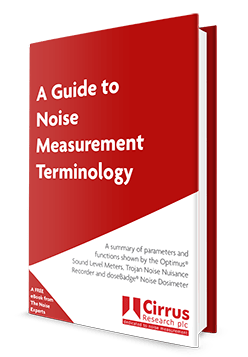When it comes to home improvement, the noise regulations surrounding the process can sometimes be a cause of concern for both homeowners and contractors. After all, nobody wants to disrupt their neighbors or violate any rules. But did you know that noise regulations for home improvement projects vary not only from state to state, but also from city to city? This means that what may be permissible in one area may not be allowed in another, making it crucial to familiarize yourself with the specific regulations in your local area before undertaking any construction or renovation project.
Home improvement noise regulations are in place to strike a balance between homeowners’ desire to improve their living spaces and the need to maintain peace and quiet within the community. Understanding the history behind these regulations can shed light on why they are necessary. Over the years, urban development and population growth have resulted in greater density in many neighborhoods, leading to the need for noise control measures. In fact, according to a survey conducted by the National Association of Home Builders, noise complaints related to home improvement projects have steadily increased in recent years. To address this, many cities have established specific guidelines and time restrictions for construction noise, ensuring that residents can still enjoy a peaceful environment while allowing for necessary improvements to be made to their homes.

What are the home improvement noise regulations in Washington state?
Home improvement noise regulations in Washington state refer to the laws and guidelines put in place to regulate and control the amount of noise generated during home improvement activities. These regulations aim to maintain a peaceful and comfortable living environment for residents, while also considering the rights of individuals to engage in home improvement projects.
These noise regulations typically establish specific time frames during which noisy construction or renovation work can be carried out, as well as enforce limits on noise levels produced by various types of equipment and machinery. By adhering to these regulations, homeowners, contractors, and construction workers can ensure that their activities do not cause excessive noise disturbances to their neighbors or violate the law.
What are your rights regarding nearby construction? Home improvement noise regulations explained
When it comes to nearby construction, homeowners have certain rights that pertain to the noise and disturbances caused by the home improvement activities. These rights are defined by home improvement noise regulations, which aim to protect homeowners from excessive noise and maintain a peaceful living environment. Understanding these regulations is essential for homeowners to know what rights they have and how to address any issues that may arise during nearby construction.
Home improvement noise regulations provide guidelines on permissible noise levels, construction hours, and the measures that must be taken to minimize noise. These regulations are typically enforced by local authorities or municipalities and may vary depending on the location. By knowing these regulations, homeowners can ensure that nearby construction activities do not disrupt their daily lives or violate their rights to a peaceful and quiet home environment.
What are the noise regulations for home improvement in Utah?
Home improvement projects can often involve noisy activities that may disturb neighbors and violate noise ordinances. To ensure compliance and maintain a harmonious neighborhood, it is important to understand the noise regulations for home improvement in Utah.
In Utah, noise regulations for home improvement typically specify the permitted hours during which loud or disruptive activities can take place. These regulations aim to balance the needs of homeowners to carry out renovations or repairs and the rights of nearby residents to enjoy peace and quiet in their homes.
What are the quiet hour regulations for home improvement noise in Michigan?
Quiet hours refer to specific time periods during which noise restrictions are in place to ensure peace and quiet in a particular area. In the context of home improvement projects, quiet hour regulations aim to minimize disruptions caused by excessive noise that may result from construction, renovation, or other related activities.
In Michigan, there are specific guidelines and regulations regarding quiet hours for home improvement noise. These regulations set the times during which excessive noise, such as loud tools, machinery, or construction activities, must be avoided to prevent disturbance to nearby residents.

What are the regulations for residential construction noise hours?
Residential construction noise hours refer to the specific time periods during which construction activities are allowed in residential areas. These regulations aim to balance the need for construction projects with the well-being and comfort of nearby residents. By establishing guidelines for noise levels and construction hours, these regulations help minimize disruptions and maintain a peaceful living environment.
Home improvement noise regulations typically set limits on the times when construction activities can take place in residential areas. These regulations may vary depending on the specific location and local ordinances. They often designate certain hours as “quiet hours” during which construction noise should be kept to a minimum or prohibited altogether. Compliance with these regulations is important to ensure a harmonious coexistence between construction projects and the surrounding community.
What are the noise regulations for home improvement projects in my area?
Home improvement noise regulations refer to the rules and guidelines set by local authorities regarding the permissible levels of noise generated during construction or renovation activities. These regulations aim to maintain a peaceful and quiet environment for residents and ensure that construction projects do not cause excessive disturbance or inconvenience to the community.
Each area or jurisdiction may have its own specific noise ordinance, which outlines the acceptable noise levels, permitted construction hours, and any additional requirements or restrictions. These regulations may vary depending on the type of property, location, and time of day.
Are Neighbors Allowed to Complain About Daytime Noise? Exploring Home Improvement Noise Regulations
When it comes to home improvement projects, noise is often an inevitable part of the process. However, it is important to understand the regulations regarding noise levels during the day to maintain a good relationship with your neighbors. So, can neighbors complain about noise during the day? Let’s delve into the topic of home improvement noise regulations to find out.
Home improvement noise regulations are rules and guidelines that dictate the acceptable noise levels and hours of operation for construction and renovation projects in residential areas. These regulations aim to strike a balance between allowing homeowners to make necessary improvements to their properties and ensuring the comfort and well-being of their neighbors.
What are the benefits of home improvement noise regulations?
Home improvement noise regulations, also known as residential noise ordinances, are rules and guidelines set by local governments to control and limit excessive noise generated during construction or renovation projects in residential areas. These regulations aim to strike a balance between allowing homeowners to make necessary improvements and maintaining a peaceful and quiet living environment for the surrounding community.
By implementing home improvement noise regulations, several advantages can be achieved. Firstly, these regulations help prevent disturbances and inconvenience caused by construction noise to nearby residents. Excessive noise can disrupt daily activities, disturb sleep, and negatively impact overall well-being. Noise regulations ensure that construction activities are carried out within reasonable limits, minimizing the disruption and maintaining a harmonious living environment.
What are the noise regulations for home improvement in Washington State?
Home improvement projects often involve noisy activities such as construction, renovations, or landscaping. However, it is important to be aware of the noise regulations in Washington State to ensure compliance and maintain a peaceful environment for both residents and neighbors. These noise regulations are designed to strike a balance between allowing necessary construction work and preserving the quality of life in residential areas.
In Washington State, noise regulations for home improvement projects are typically governed by local jurisdictions, such as cities or counties. These regulations outline specific guidelines regarding the permissible noise levels, allowable hours of operation, and the types of activities that are considered acceptable. Violating these regulations can result in penalties or fines, so it is crucial to familiarize yourself with the noise ordinances before starting any home improvement project.
What are the rules for construction in residential areas?
Construction in residential areas is subject to certain rules and regulations to ensure the safety, well-being, and comfort of residents. These rules are designed to minimize disruptions and maintain the quality of life for those living in the vicinity. Understanding and adhering to these regulations are crucial for homeowners, contractors, and builders involved in home improvement projects.
One important aspect of construction regulations in residential areas is noise control. Home improvement noise regulations aim to limit excessive noise generated during construction activities, such as drilling, hammering, and heavy machinery operation. These regulations typically specify the permissible noise levels, designated quiet hours, and the use of noise-reducing equipment or techniques. Adhering to these regulations helps minimize disturbance to residents and maintains a peaceful living environment.
Is Construction Noise Driving You Crazy? Learn About Home Improvement Noise Regulations
Living near a construction site can be overwhelming, especially when the noise is constant. If you find yourself frustrated by the construction noise around your home, it’s important to understand the regulations that govern home improvement noise. By knowing your rights and the guidelines that construction companies must follow, you can find some relief and peace of mind.
Home improvement noise regulations are designed to protect residents from excessive noise disturbances caused by construction activities. These regulations set limits on the amount of noise that construction companies can generate during specific hours and days. They aim to balance the need for construction and renovation projects with the well-being and comfort of the surrounding community.
What are the Noise Regulations for Home Improvement Construction Work in Residential Areas on Weekends?
Construction work in residential areas can be disruptive and noisy, especially on weekends when people are looking for some peace and quiet. To ensure that construction activities do not cause excessive disturbance to residents, there are specific noise regulations in place for home improvement projects. These regulations dictate the allowable time frames for starting construction work in residential areas on weekends, helping to strike a balance between the needs of homeowners and the progress of construction projects.
By following these noise regulations, construction companies and homeowners can avoid potential conflicts with neighbors and local authorities. It is essential to be aware of and comply with these regulations to maintain good relations with the community and ensure a smooth and efficient home improvement process.
So, in conclusion, it is essential to be aware of the noise regulations when undertaking home improvement projects. These regulations are in place to protect the peace and well-being of both you and your neighbors. By following these guidelines, you can ensure a harmonious living environment and maintain positive relationships with those around you.
Remember to check with your local authorities to understand the specific noise restrictions in your area. Be considerate of noise levels especially during early mornings, evenings, and weekends when people are more likely to be home. By being mindful of these regulations, you can enjoy the benefits of your home improvements while respecting the peace and privacy of your community.







